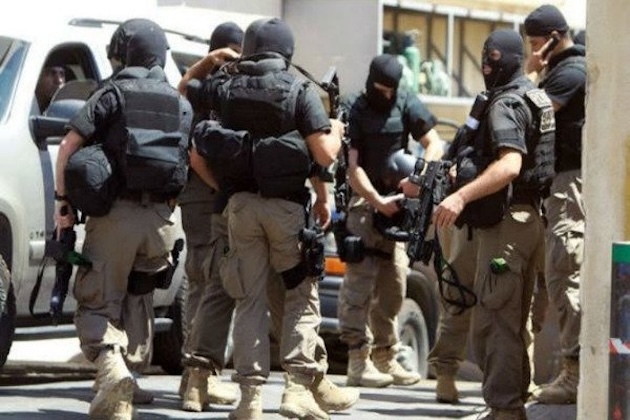Move FM Global News

Lebanese intelligence claims to have foiled Israeli terrorism plots
Oct 11, 2025Lebanese authorities announced on Friday the dismantling of what they describe as an Israeli intelligence network allegedly planning terrorist attacks, bombings, and assassinations within the country. The announcement escalates tensions amid ongoing cross-border fire and a fragile ceasefire with the Hezbollah militant group.
The Alleged Plot
In a formal statement, Lebanon’s General Security Directorate, the country’s major intelligence agency, said it had arrested several individuals, including a Lebanese-Brazilian dual national and a Palestinian national. The agency claimed the suspects confessed to planning attacks aimed at causing mass casualties.
While not specifying all targets, the statement linked the network to previous assassinations of officials from al-Jamaa al-Islamiya, a Lebanese Sunni group allied with Hamas. Lebanese media reports, cited by the agency, indicated the plotters intended to plant explosives in cars and motorcycles at a public commemoration for Hezbollah’s late leader, Hassan Nasrallah, who was killed in an Israeli strike last year.
Links to Past Israeli Operations
The alleged plot bears similarities to past Israeli operations in Lebanon. Last year, Israel successfully penetrated Hezbollah’s communications, rigging thousands of pagers with explosives, which detonated simultaneously, killing at least a dozen people and wounding thousands.
According to the Lebanese news outlet Lebanon Debate, the recently arrested suspects planned to use explosives similar to those employed in the pager incident. If confirmed, this foiled plot represents a significant counterintelligence success for Lebanon. In recent years, Israel has demonstrated a deep penetration of Hezbollah, successfully identifying and eliminating many of its top political and military figures.
Broader Regional Context
The intelligence operation occurs against a backdrop of intense domestic and regional pressure:
-
Domestic Disarmament Push: The Lebanese government, led by Prime Minister Nawaf Salam, has been advocating for a U.S.-sponsored plan to disarm Hezbollah. Earlier this year, the government issued a decree to that effect, but Hezbollah has defiantly rejected it, stating it will treat the decision “as if it does not exist.” The group argues its arsenal is essential to defend Lebanon against Israeli aggression.
-
Violated Ceasefire: Despite a ceasefire agreement reached in November of last year, hostilities have not ceased. Israel regularly conducts air strikes inside Lebanon, which it says target Hezbollah operatives. These strikes have killed hundreds, including civilians. A recent attack on the town of Bint Jbeil killed five civilians, three of them children from the same family.
-
Regional Spillover: The ongoing conflict between Israel and Hezbollah is widely seen as a spillover from the war in Gaza. It has resulted in significant displacement on both sides of the Lebanon-Israel border, with critics arguing Israeli bombardment aims to prevent residents from returning to their villages.
-
Israeli Occupation: Israel continues to occupy parts of southern Lebanon, including the disputed Ghajar village and the Shebaa Farms, which it captured from Syria in 1967 but which Lebanon claims.
International Reaction and Next Steps
There has been no immediate comment from Israeli officials on the Lebanese allegations. Israel typically does not confirm or deny its intelligence operations abroad.
The announcement is likely to be used by Hezbollah to justify its refusal to disarm and to bolster its argument that Lebanon remains under direct threat from Israel. The situation underscores the extreme fragility of the current truce and the potential for a rapid, wider escalation.
(File photo).


